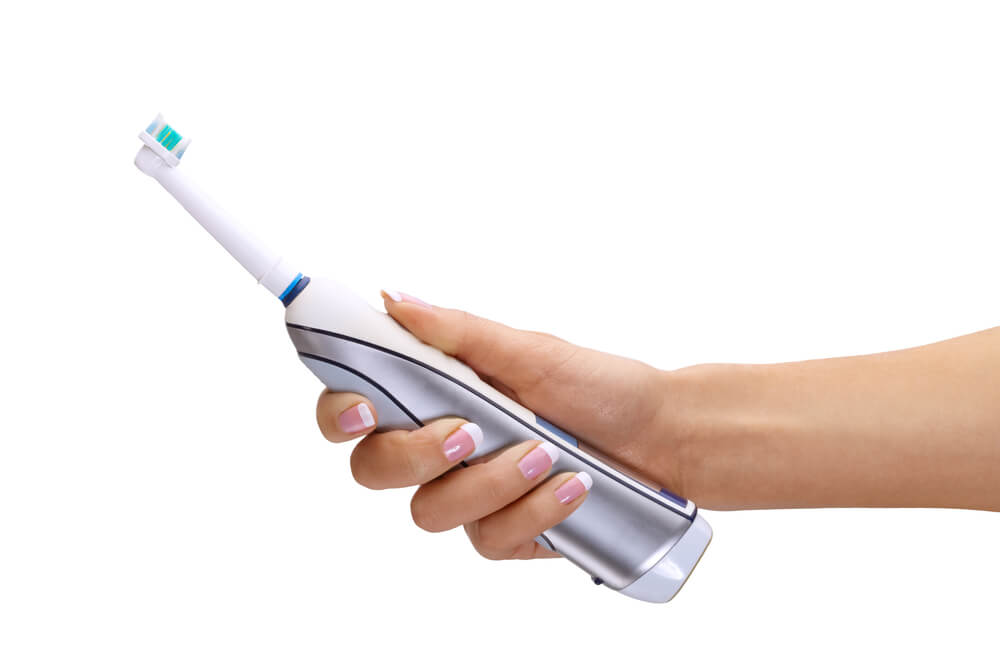Brushing your teeth is something that you do multiple times every day. With a task this frequent, it is vital to make sure that you have the right tools for the job. Toothbrushes come in all shapes & sizes with different bristles and handles, and some are specially designed for specific purposes. Even with all these options, people usually consider two main categories for toothbrushes: manual and electric. Manual toothbrushes are the most common, but electric toothbrushes have seen increasing popularity in recent years and are now available almost everywhere that a manual toothbrush can be purchased. Should you be using an electric toothbrush, or are manual brushes best for you? We’ll go over what each one is and their differences, and by the time you’re done reading this, you should hopefully be able to make that decision for yourself.
Manual Toothbrush
When you think of a toothbrush, you probably picture a manual toothbrush. These are the most common toothbrushes, and you can get them pretty much anywhere. That accessibility is one of the main benefits of this type of brush because they are simple to find when you need one. Another benefit is the affordability of the manual toothbrush. Each toothbrush will likely only cost you the low price of $1 to $3.
A couple of the main downsides to manual toothbrushes are a result of how easy it is for user error to influence brushing. Studies have shown that people are more likely to brush too hard with a manual toothbrush. Brushing too hard can be painful and damage your gums and teeth, so if you use a manual brush, be careful not to brush too hard! Another con of using manual toothbrushes is that you have to replace them frequently. While that low price is attractive, know that you will repeatedly make that purchase.
Electric Toothbrush
A toothbrush that does the work for you? It sounds like a no-brainer, but let’s look at the pros and cons before forming an opinion. As mentioned previously, electric brushes promote more gentle use. This can be great for people with braces or other dental corrections. In addition, electric toothbrushes have been found to be more effective at removing plaque and lowering the risk of gingivitis. As an extra note, oscillating brushes are seemingly more effective than ones that only vibrate. Electric toothbrushes also require less utilization of your own hands, making them an excellent option for people with limited mobility or other disabilities. In addition, many electric brushes have built-in timers that make it effortless to make sure you brush for the proper amount of time. Another benefit is that electric toothbrushes can cause less waste than manual toothbrushes. There are single-use electric toothbrushes, but for the most part, electric brushes last a long time, and you only have to replace the brush head every so often.
All these benefits come at a hefty cost, with some more intricate options as pricey as $250. The replacement heads can be proportionately expensive depending on the brush you have, and it can be a chore to track down the proper replacements. Also, an electric toothbrush may not have a significant difference in plaque removal for everyone. In some cases, you might even find that a manual toothbrush works better for you because there are so many variables when it comes to plaque reduction. Electric brushes may also cause abrasion on dental implants, according to dental implant expert Dr. Andrew Slavin. In saying that, the main draw of an electric toothbrush is that it vibrates or oscillates to take care of a lot of the work, but that vibrating can be intense for some people. Many people find the feeling of using an electric toothbrush uncomfortable or even painful. If these drawbacks apply to you, an electric brush probably isn’t worth the difference in cost.
Pros & Cons Recap
Hopefully, this information has helped determine whether you want to change up the type of toothbrush that you are using. To recap, here is a list of pros and cons that we covered. Of course, if you aren’t sure what is best for you, you can always consult a dental professional to get some extra information.
Manual Toothbrush Benefits:
– Accessible
– Affordable
– Works well for maintaining oral hygiene
Manual Toothbrush Drawbacks:
– Easy to brush incorrectly
– Have to replace frequently
– Creates more waste with the frequent disposal
Electric Toothbrush Benefits:
– You do less work
– More effective at removing plaque in most cases
– Optimal for people with disabilities & dental hardware like braces
– Built-in timer to promote proper brushing
– Less waste
Electric Toothbrush Drawbacks:
– Expensive
– Upkeep & maintenance can be costly & bothersome
– May damage Dental Implants or similar prosthetics
– Vibrating sensation can be uncomfortable or painful


